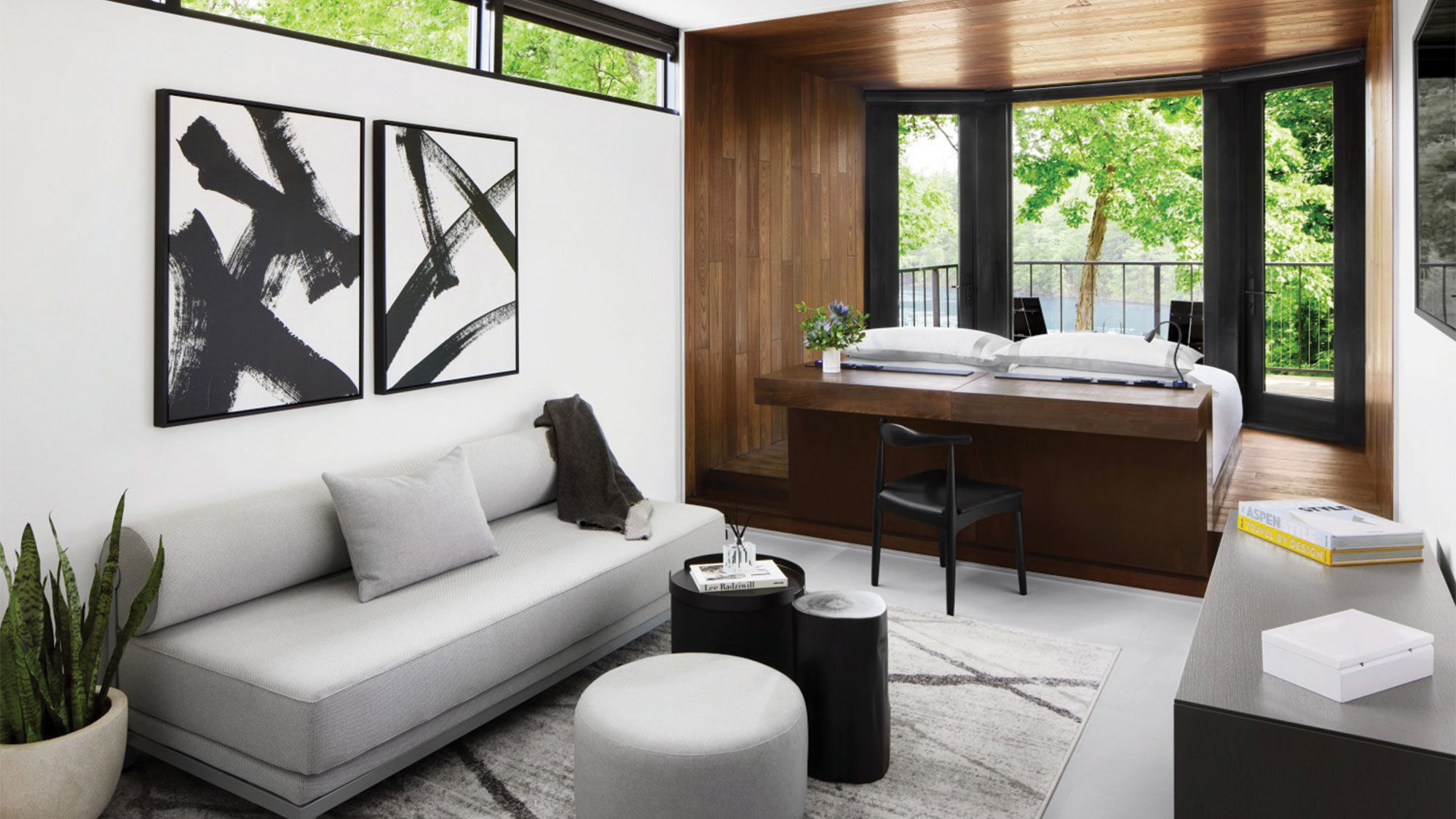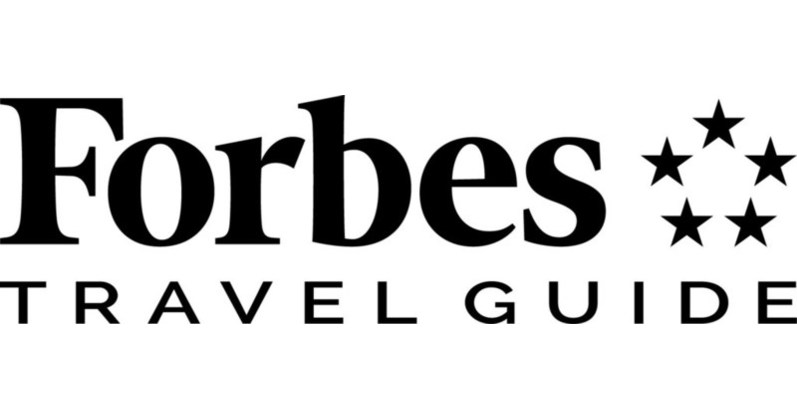For entrepreneur Jordan Bem, a mismatch between room supply and offseason demand in the highly seasonal destination of Montauk, N.Y., turned out to be the catalyst for a new hospitality concept.
Bem and his sister were invited to visit a friend in the vacation hot spot on the easternmost part of Long Island in the summer, where they found hotel rates of around $2,000 a night.
“We started wondering why these hotels are charging $2,000 a night and what they do in the offseason,” he said. “And that started this crazy idea around, what if you could build a hotel that’s always in the right place at the right time?”
Bem took that idea and ran with it, eventually launching Moliving, which is billed as a “nomadic hospitality solution.” He is now CEO of the company, which unveiled its first prototype unit last summer.

All units have their own bathrooms. Photo Credit: David Mitchell
Moliving’s 400-square-foot guest units are built on a custom chassis, making them mobile and able to be towed from one location to another. The units are also outfitted with solar panels, lithium batteries and freshwater, graywater and blackwater tanks, enabling them to exist off-grid, if needed.
Moliving accommodations are hardly about roughing it, however. Each guest unit features high-end finishes and its own bathroom as well as a 120-square-foot, private deck. And in addition to guest units, Moliving outposts will offer access to shared amenities like food and beverage venues, pools, event space and spas, among other facilities.
Although Moliving’s locations are designed to be permanent setups, the number of units available at each property is fluid.
“Whenever the seasons change or the projected occupancy changes, I can just reduce my room count,” said Bem. “There may be a market where, from May through October, we’re running at 100% occupancy. But in the offseason, maybe instead of needing 50 keys, we’re going to be needing 25 keys. We remove those rooms and take them somewhere like Florida, for example.”
Moliving locations are intended to be developed as joint ventures with landowners. According to Bem, a landowner partner provides the land and some permanent infrastructure, while Moliving handles room inventory and operations, overseeing the property’s management, marketing, branding and more. Profits are shared as part of the joint venture model.

The unit’s exterior. Each unit includes a private, 120-square-foot deck, and guests have access to amenities like pools and spas. Photo Credit: David Mitchell
Moliving plans to open its inaugural property, Hurley House, this summer. Set to be located in Hurley, N.Y., a small upstate town nestled between Woodstock and Kingston, Hurley House will make its debut with somewhere between 50 and 100 units.
Although Moliving’s pricing is likely to vary widely by destination, the Hurley House units are expected to start at around $249 per night.
In addition to upstate New York, Bem plans to enter more destinations fairly rapidly.
Thanks to the units’ small, modular footprint and efficient development model, the company touts a three-to-five-month construction, assembly and installation period, according to its website.
Moliving has yet to announce specifics around its expansion plans but lists markets like the Hamptons; Cape Cod, Mass.; Hilton Head, S.C.; and the Florida Keys among its “target locations” on the East Coast, where it plans to expand in 2023 and 2024, along with Joshua Tree and Sonoma in California; Lake Tahoe, Nev.; and Vail, Colo., in the West.
The brand also expects to make an international foray in the near future, with plans for a Caribbean location, Bem said, and further global expansion in the offing.
“What we’re doing is attractive because we’re basically able to shift inventory dependent on demand,” said Bem. “We can run leaner and meaner, and the profitability of doing that is huge. Our rooms are only there when it’s necessary.”









